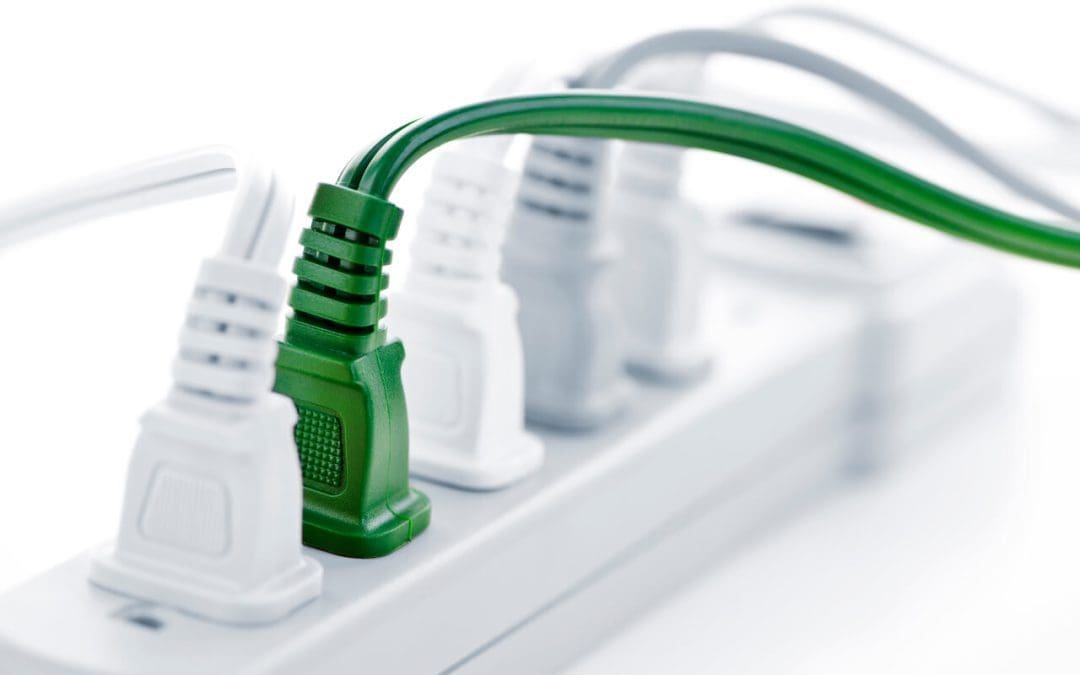Energy costs have been rising for years, so it’s more important than ever for homeowners to do everything they can to save energy at home. Here are some practical and effective ways to save energy in different areas of your home.
Optimize Heating and Cooling
One of the largest energy expenses in most homes comes from heating and cooling. To reduce energy use, start by ensuring your home is well-insulated. Proper insulation in your attic, walls, and floors can prevent heat loss in the winter and keep your home cooler in the summer. Seal any gaps or cracks around windows and doors to prevent drafts.
Consider installing a programmable thermostat. This allows you to set your heating and cooling systems to operate less when you are not at home or during nighttime hours. Lowering your thermostat by just a few degrees in winter and raising it in summer can lead to significant savings.
Upgrade Your Appliances to Save Energy at Home
Older appliances are often less energy-efficient than newer models. When it’s time to replace an appliance, look for the Energy Star label, which indicates that the product meets energy efficiency guidelines set by the U.S. Environmental Protection Agency.
In the kitchen, use your dishwasher efficiently. Only run it with full loads and use the energy-saving or air-dry option. For laundry, wash clothes in cold water when possible, and always clean the lint filter in your dryer to ensure it operates efficiently.
Use Energy-Efficient Lighting
Lighting accounts for about 10% of a household’s energy use. Switch to energy-efficient light bulbs, such as LEDs, which use up to 75% less energy and last significantly longer than incandescent bulbs. Additionally, make the most of natural light during the day by opening curtains and blinds.
Turn off lights when you leave a room, and consider installing motion sensors or timers for outdoor lighting to ensure they are only on when needed. Dimming switches can also help reduce energy use and extend the life of your light bulbs.
Implement Smart Home Technology to Help Save Energy at Home
Smart home technology can significantly reduce energy consumption. Smart plugs and power strips can cut off power to devices that are in standby mode, which still consume energy. Smart thermostats, as mentioned earlier, can learn your schedule and adjust temperatures accordingly.
Home energy monitors provide real-time information on your energy use, helping you identify where you can make further savings. Some systems can even suggest the best times to use high-energy appliances based on your utility’s pricing schedule.
Practice Water Conservation
Heating water accounts for about 18% of a home’s energy use. To reduce hot water use, take shorter showers and install low-flow showerheads and faucets. Insulate your water heater and set the temperature to 120 degrees Fahrenheit to prevent overheating.
Fix any leaks promptly, as even a tiny drip can waste a significant amount of water over time. When replacing water heaters, consider energy-efficient models like tankless or heat pump models.
Adjust Your Daily Habits to Save Energy at Home
Simple changes in daily habits can lead to substantial energy savings. Unplug chargers and electronics when not in use, as they can draw power even when turned off. Use power strips to make this easier.
To retain heat, cook with lids on pots and pans and match the pot size to the burner. Avoid opening the oven door frequently while cooking, as each opening lowers the temperature and requires more energy to return it to the set level.
Maintain and Upgrade Home Infrastructure
Regular maintenance of your home’s infrastructure is crucial for energy efficiency. Have your heating and cooling systems serviced annually to ensure they are running efficiently, and clean or replace air filters regularly.
Consider investing in energy-efficient windows and doors. Double or triple-pane windows with low-E coatings can reduce heat loss. Energy-efficient doors prevent air leaks and provide better insulation.
Implementing these strategies can significantly reduce your home’s energy consumption. This will help you save on utility bills and contribute to a more sustainable and environmentally friendly lifestyle. Small changes, when combined, can make a big difference in your overall energy use.
FAQs About Saving Energy
Is it worth investing in solar panels for home energy savings?
Investing in solar panels can be worth it, depending on location, energy usage, and available incentives. Solar panels can significantly reduce your electricity bills and provide long-term savings, especially in sunny regions.
Are smart home devices really effective in saving energy?
Yes, smart home devices like smart thermostats, plugs, and energy monitors effectively save energy. They provide better control over your home’s energy use and can help automate energy-saving practices based on your habits and needs.
How can landscaping help in saving energy at home?
Landscaping can help save energy by providing natural shading and windbreaks. Planting trees and shrubs strategically around your home can reduce cooling costs in summer and heating costs in winter by blocking cold winds.
What are some energy-saving tips for renters?
Renters can save energy by using energy-efficient lighting, sealing drafts with temporary weatherstripping, using power strips to manage electronics, and opting for energy-efficient window treatments. Discussing potential upgrades with your landlord, such as installing programmable thermostats, can also help.
Assure Inspections Inc. provides professional inspection services to homebuyers and sellers in the Chicago area. Contact us to schedule an appointment.

